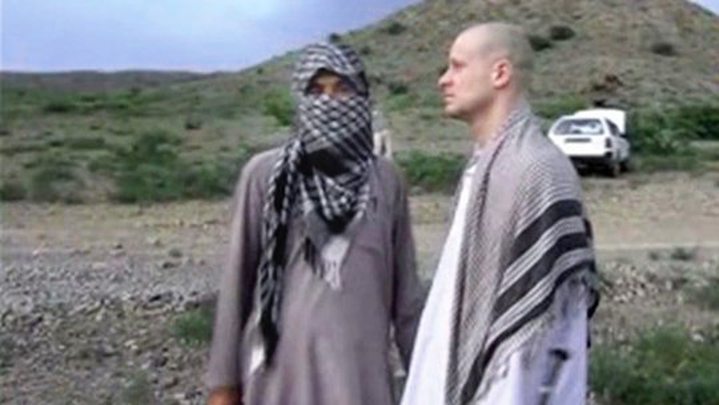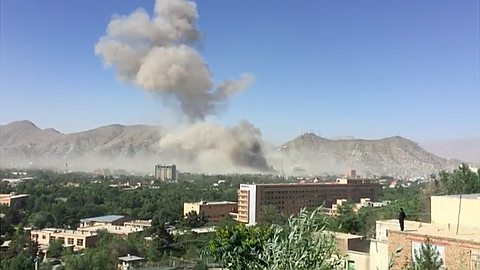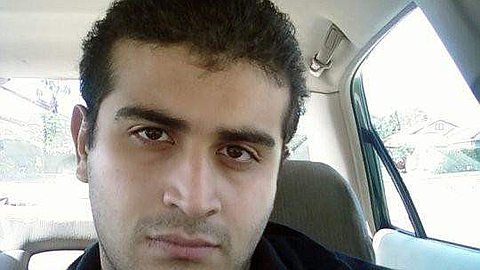Taliban Deftly Offer Message in Video of Freed U.S. Soldier

In their viral video to the world on Wednesday, framing dramatic images of their transaction with the United States with music, commentary and context, the Taliban scored their biggest hit yet after years of effort to improve their publicity machine — one bent on portraying them as the legitimate government of Afghanistan in exile.
Within hours of the video’s release, the Taliban website where it was posted was overwhelmed with traffic and the page hosting it crashed, according to Zabiullah Mujahid, a spokesman for the insurgents. The video has since been uploaded in dozens of different versions on YouTube.
It is the product of a Taliban propaganda effort that has grown increasingly savvy.
In recent years, the Taliban have tried to score points by insisting that they, unlike their Pakistani militant counterparts, actively supported polio vaccinations. Two months ago, realizing that they had outraged the Afghan public with an attack by gunmen on the Serena Hotel in Kabul that left children among the dead, the Taliban issued their first public apology. And they suggested that they had purposefully held back on attacking civilians on election day in April, and that Afghans should trust the Taliban over a government being chosen by Western ways.
On Wednesday, several passages in the video went straight to the Taliban’s campaign for attention abroad and political heft at home.
One series of scenes focuses on the fruit of the Taliban’s deal with the United States: the five Taliban detainees who had been freed from the Guantánamo Bay prison camp are shown joyously embracing their comrades at the militants’ diplomatic post in Doha, Qatar.
That site — billed by the Taliban as the political office of the “Islamic Emirate of Afghanistan,” the name of the old Taliban government — sums up the heart of the Taliban’s political efforts. It was from there that the Taliban negotiated with American officials, through Qatari mediation, to finalize the detainee transfer deal. And it was there, from the moment of the post’s opening last summer, that the Taliban clearly showed their new bid for international attention, conducting television interviews, giving speeches, and even featuring a ribbon cutting in a news video with Qatari officials.
The display infuriated President Hamid Karzai of Afghanistan, who accused the Taliban of reneging on their agreement not to display themselves as an Afghan government in exile. And the renewal of the post’s active role in recent weeks — striking a deal between the United States and Taliban senior leadership that omitted the Afghan government — raised quiet concerns among even some Afghan officials who did not object to the transfer itself.
“The entire reconciliation enterprise for the Taliban has always been about reclaiming their lost legitimacy from 2001,” said Candace Rondeaux, an Afghan expert and research fellow at the Center for National Security at Fordham Law School. “They were the legitimate government of Afghanistan, as far as they are concerned.”
Ms. Rondeaux added that for the Taliban, negotiating with the United States “has always been about signaling their importance in the market of nations.”
Where the Taliban have struggled has been in producing propaganda that would resonate beyond sympathetic Afghans and hard-core jihadis. Their usual fare has been videos of gory images overlaid with Koranic verses. And even clear attempts to speak directly to Americans — such as an open letter to Congress posted after the 2010 midterm elections — have been mired with misspellings, stock political speech and obvious misinformation.
On Wednesday, though, the Taliban’s message rang clear in their video and commentary on Sergeant Bergdahl’s release: They saw the Americans come meet them on equal footing, on insurgent turf, and found them wanting.
One narrator explains the importance of the agreement to exchange Sergeant Bergdahl for the five Taliban detainees at Guantánamo Bay. For the insurgents, getting the five men back was “blissful news” and a “historic achievement,” the narrator says, which “filled up the eyes of all Muslims with tears of happiness.”
When Sergeant Bergdahl “saw his American helicopter, he was very happy and wanted to rush toward them,” one Taliban member said in the video.
But once on the ground, the Americans, to the dismay of the Taliban, proved uninterested in any pomp. They rushed through the encounter and did not stop to talk or exchange polite greetings, as is customary in Afghanistan, even during hostage releases. The narrator complained that they had managed to shake hands with only two of the Americans, and that one of them had hastily shoved his left hand forward, considered a particularly rude gesture in Afghanistan.
Those kinds of complaints about American behavior are common across Afghan society, not just among those who want the United States military to leave. It has been a grating source of tension as the years of American presence here have stretched on.
“We wanted to convey some messages to them via the interpreter, but they didn’t spend much time with us,” said the Taliban fighter, speculating that perhaps the Americans were too frightened to linger. “They even didn’t let us shake hands with the soldier and say goodbye, and they behaved in a very simple way,” the fighter said.
The video ends with the same warning that a Taliban fighter in the video can be heard delivering to Sergeant Bergdahl moments before his release. The words that appear on the screen contain a misspelling, but the message seems clear. “Don’ come back to Afghanistan,” it says.
If the Taliban accounts heard on the video are accurate, they also add new detail to what had been reported about the transfer, which took place on Saturday in the eastern province of Khost, which borders Pakistan, where Sergeant Bergdahl was believed to have been held.
American officials said they were aware of the video and were reviewing it. “We have no reason to doubt the video’s authenticity,” said Rear Adm. John F. Kirby, a Pentagon spokesman. “Regardless, we know the transfer was peaceful and successful, and our focus remains on getting Sergeant Bergdahl the care he needs.”
Much of the video clip’s audio track consists of an interview with one of the Taliban fighters who is described as having taken part in the handover. He talks about the arrangements that were made with the Americans, and then narrates how the American forces arrived by helicopter, with warplanes circling in the sky above. At times, the camera shifts from the Taliban fighters and Sergeant Bergdahl to show aircraft overhead.
He describes an exchange he had with an American, presumably the commander of the team, as the two worked out last-minute logistical details of the encounter, apparently the first prisoner exchange by the United States and the Taliban in the 13-year war in Afghanistan.
There was some talk of where precisely to meet, according to the Taliban fighter, and the Taliban agreed to the American suggestion that the two sides link up about 1,600 feet from the house of a well-known resident of the area. There was also some last-minute confusion. The Americans initially wanted the Taliban to hold something green as they approached with Sergeant Bergdahl, but the insurgents did not have any green cloths. The two sides quickly decided a white sheet would suffice.
The Americans then said that three of them would jump from the helicopters, and that two Taliban should walk forward with Sergeant Bergdahl.





